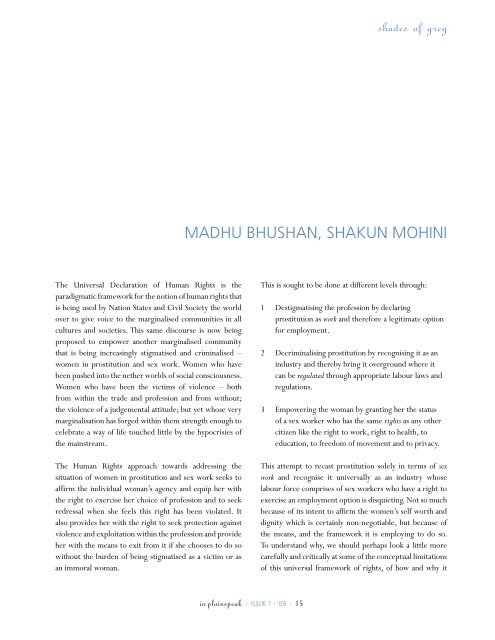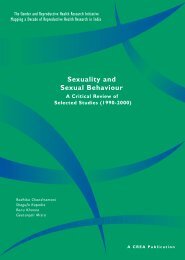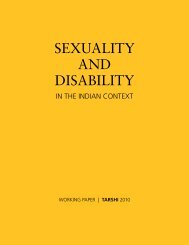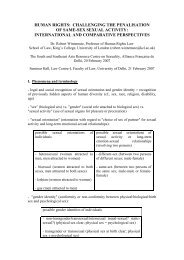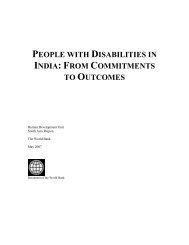Download Pdf - TARSHI
Download Pdf - TARSHI
Download Pdf - TARSHI
You also want an ePaper? Increase the reach of your titles
YUMPU automatically turns print PDFs into web optimized ePapers that Google loves.
shades of grey<br />
Madhu Bhushan, Shakun Mohini<br />
The Universal Declaration of Human Rights is the<br />
paradigmatic framework for the notion of human rights that<br />
is being used by Nation States and Civil Society the world<br />
over to give voice to the marginalised communities in all<br />
cultures and societies. This same discourse is now being<br />
proposed to empower another marginalised community<br />
that is being increasingly stigmatised and criminalised –<br />
women in prostitution and sex work. Women who have<br />
been pushed into the nether worlds of social consciousness.<br />
Women who have been the victims of violence – both<br />
from within the trade and profession and from without;<br />
the violence of a judgemental attitude; but yet whose very<br />
marginalisation has forged within them strength enough to<br />
celebrate a way of life touched little by the hypocrisies of<br />
the mainstream.<br />
The Human Rights approach towards addressing the<br />
situation of women in prostitution and sex work seeks to<br />
affirm the individual woman’s agency and equip her with<br />
the right to exercise her choice of profession and to seek<br />
redressal when she feels this right has been violated. It<br />
also provides her with the right to seek protection against<br />
violence and exploitation within the profession and provide<br />
her with the means to exit from it if she chooses to do so<br />
without the burden of being stigmatised as a victim or as<br />
an immoral woman.<br />
This is sought to be done at different levels through:<br />
1 Destigmatising the profession by declaring<br />
prostitution as work and therefore a legitimate option<br />
for employment.<br />
2 Decriminalising prostitution by recognising it as an<br />
industry and thereby bring it overground where it<br />
can be regulated through appropriate labour laws and<br />
regulations.<br />
3 Empowering the woman by granting her the status<br />
of a sex worker who has the same rights as any other<br />
citizen like the right to work, right to health, to<br />
education, to freedom of movement and to privacy.<br />
This attempt to recast prostitution solely in terms of sex<br />
work and recognise it universally as an industry whose<br />
labour force comprises of sex workers who have a right to<br />
exercise an employment option is disquieting. Not so much<br />
because of its intent to affirm the women’s self worth and<br />
dignity which is certainly non-negotiable, but because of<br />
the means, and the framework it is employing to do so.<br />
To understand why, we should perhaps look a little more<br />
carefully and critically at some of the conceptual limitations<br />
of this universal framework of rights, of how and why it<br />
in plainspeak · ISSUE 1 · ‘09 · 15


